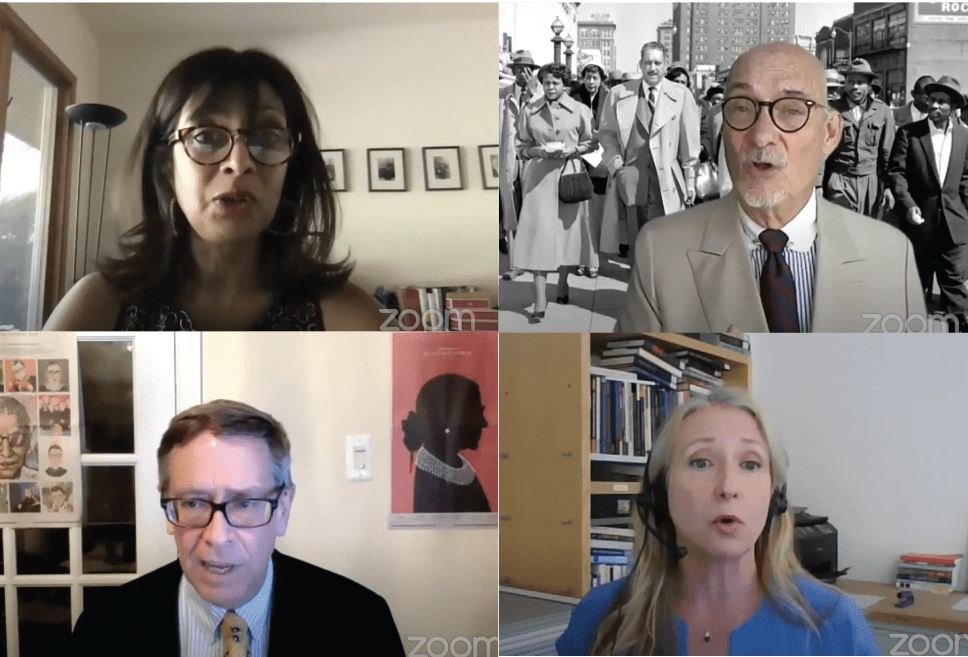An Insider’s Take on the Supreme Court Term
UC Law SF held its annual U.S. Supreme Court review and preview, packed with analysis from Professors Radhika Rao, Jodi Short, Matt Coles and Rory Little on what was an unprecedented 2019 term and what is predicted as a riveting session that began Oct. 5.
Last term, the justices handled only 61 cases, holding oral arguments by phone. Those resulted in 53 signed opinions, one of the smallest number of opinions in years, said Little, who served as moderator of the panel. Criminal law cases made up about a third of the docket.
The new term began Monday with livestreamed oral arguments with eight justices, following the death of Justice Ruth Bader Ginsburg. More than 30 cases are up for review. Arguments are scheduled through December. Oral arguments are available here.
Little said the justices typically get as many as 1,000 petitions for certiorari a year. He expects the court to grant review to additional cases. The court canceled two months of oral arguments, so the justices are catching up on a pandemic backlog, having deferred about a dozen cases into this coming term.
Rather than just two arguments per day, the court will hear four cases each day for a few days to start the new Term. With eight justices, there is a chance of a tie vote. If so, the cases will either be “affirmed by an evenly divided court,” or be reargued when there are nine justices. Judge Amy Coney Barrett of the 7th U.S. Circuit Court of Appeals has been nominated. Confirmation hearings are slated to begin Oct. 12.
The panelists discussed cases slated for the coming term, bringing an insider’s take. Rao and Little clerked at the Supreme Court, Rao for Justices Harry Blackmun and Thurgood Marshall; Little worked for Justices Potter Stewart, William J. Brennan, Jr., John Paul Stevens, Lewis F. Powell Jr., Chief Justice Warren Burger—all in one Term, an unprecedented feat.
Coles, as Director of the ACLU’s national LGBT Project, was one of the lead attorneys on Evans v. Romer, which resulted in a landmark 1996 Supreme Court decision striking down Colorado’s constitutional amendment that banned gay rights laws.
Watch the entire program here. For a deeper dive, check out SCOTUSblog, universally acknowledged as the best source of information on the court.
